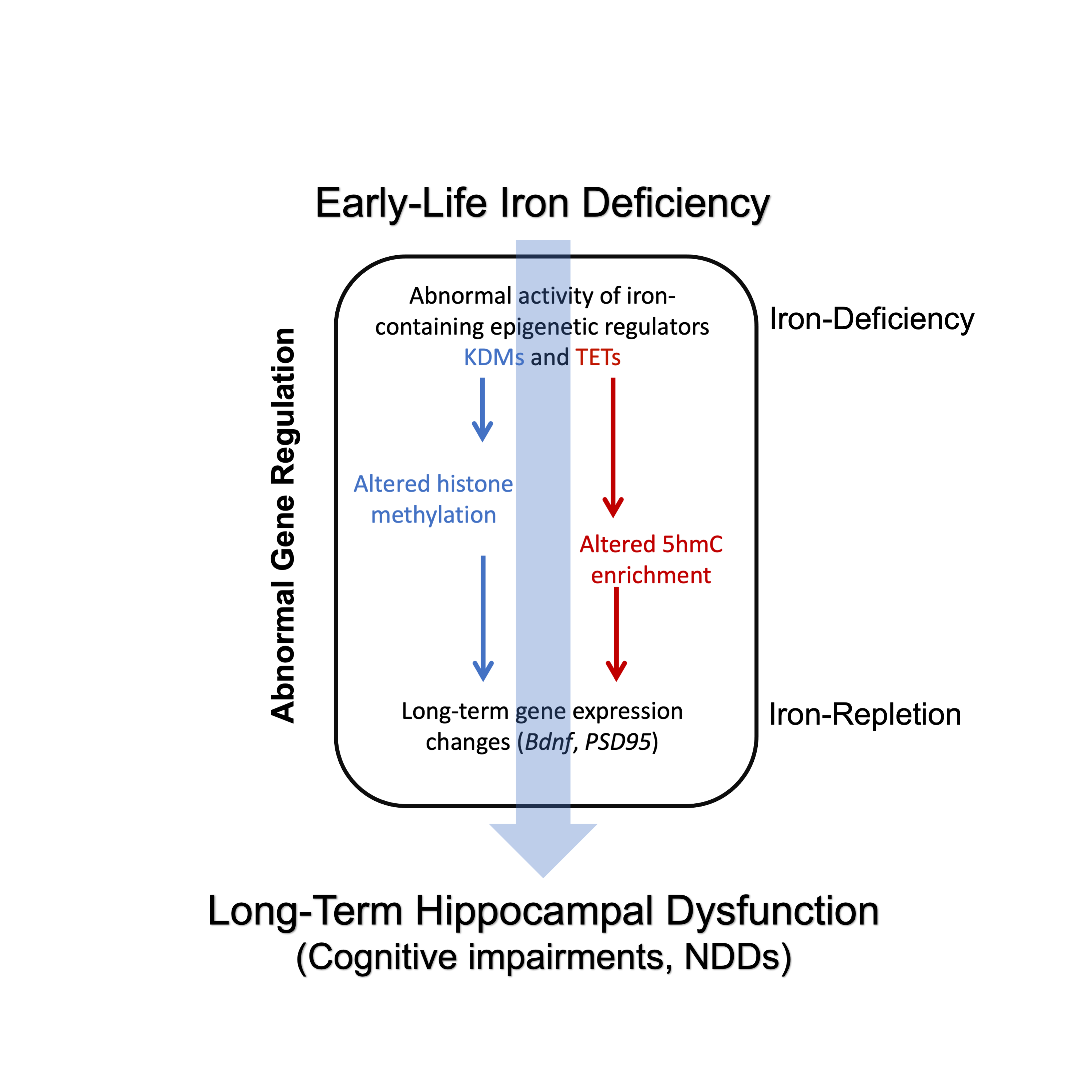Early-life iron deficiency (ID) affects ~40% of all pregnant women worldwide. It causes long-term impairments in cognition and socio-emotional behaviors, and increases risks for neurodevelopmental disorders (NDDs, e.g., autism and schizophrenia spectrum disorders) in children.The persistent abnormalities constitute a significant cost to individual and society in terms of education attainment and mental health risk. The underlying pathobiology for the persistent abnormalities caused by early life ID has been ascribed to impaired neural development and function (e.g., energy metabolism, dendritogenesis, and synaptogenesis) and widespread gene dysregulation, both carried forward into adulthood. Despite this knowledge, major gaps remain, which include the lack of a mechanistic understanding underlying these long-term changes and the effects of ID on specific brain cell types. Such knowledge is critical to the development of novel therapeutic strategies to prevent the long-term negative effects of early-life ID on the developing brain.
Associate Professor Phu Tran (Pediatrics; MSI PI) is working on a project, called “Transcriptomic analysis of early-life iron deficiency induced gene expression changes in developing and adult male rat hippocampus,” that uses RNA-seq analysis is to provide a more complete characterization of ID effects and its treatment with a “methyl” diet on the change in gene expression between iron-deficient and iron-repleted rat hippocampi to further support their hypothesis of long-term neural gene dysregulation by early-life ID.
This project received a Research Computing Seed Grant. Seed Grant funds are intended to promote, catalyze, accelerate and advance U of M-based informatics research in areas related to the MnDRIVE initiative, so that U of M faculty and staff are well prepared to compete for longer term external funding opportunities. In this regard, the findings were used as preliminary data in two NIH R01 applications, one of which is under review and the other will be resubmitted following additional follow-up experiments to increase the competitiveness of the application, attesting to the success of this funding mechanism. This Seed Grant falls under the Brain Conditions research area of the MnDRIVE initiative.
As of September 2023, the RC Seed Grant programs have been revised into the DSI Seed Grant programs. DSI Seed Grants include many of the same goals as the old program, with a new emphasis on data science. Complete information about DSI Seed Grants, including application deadlines, can be found on the RC website.
